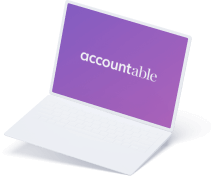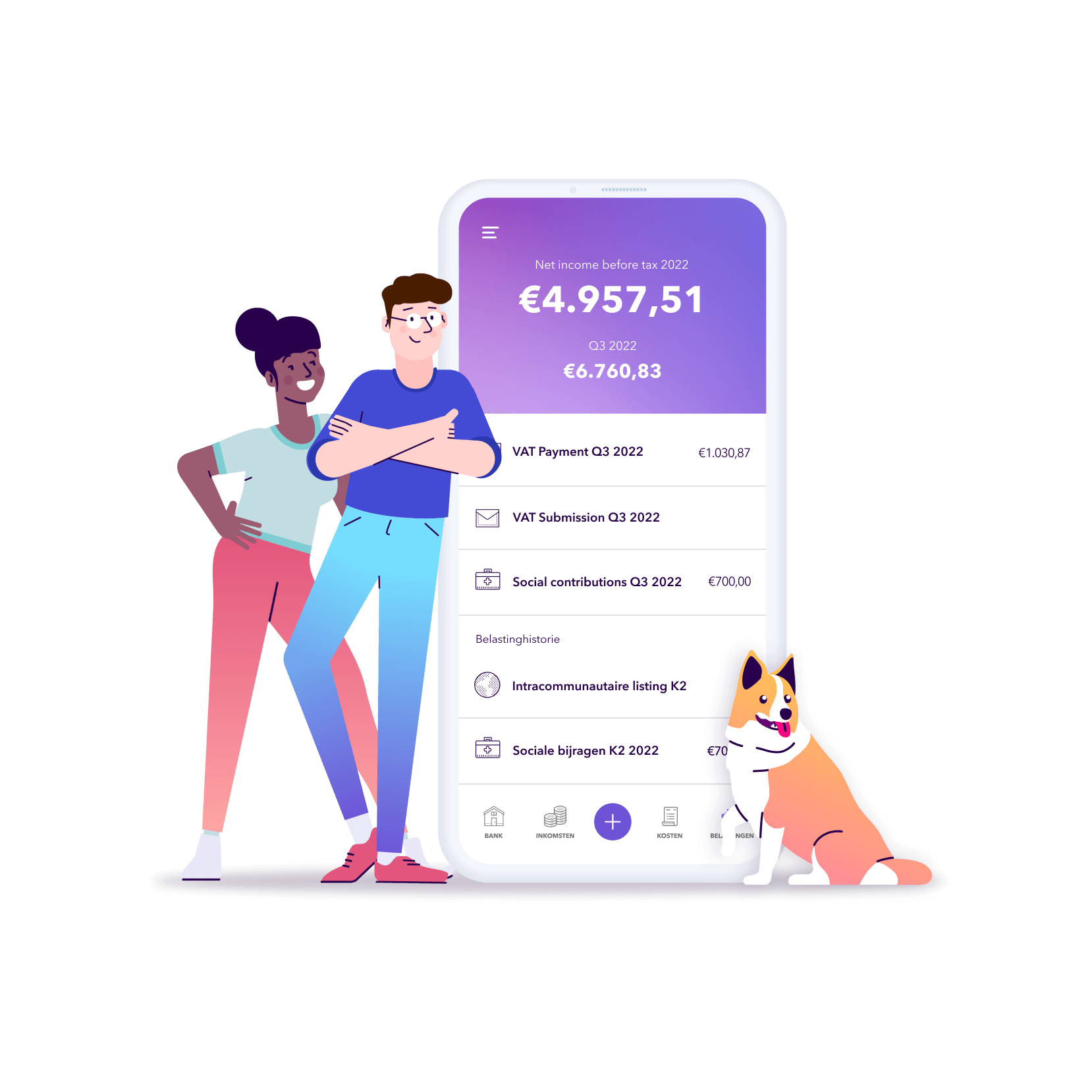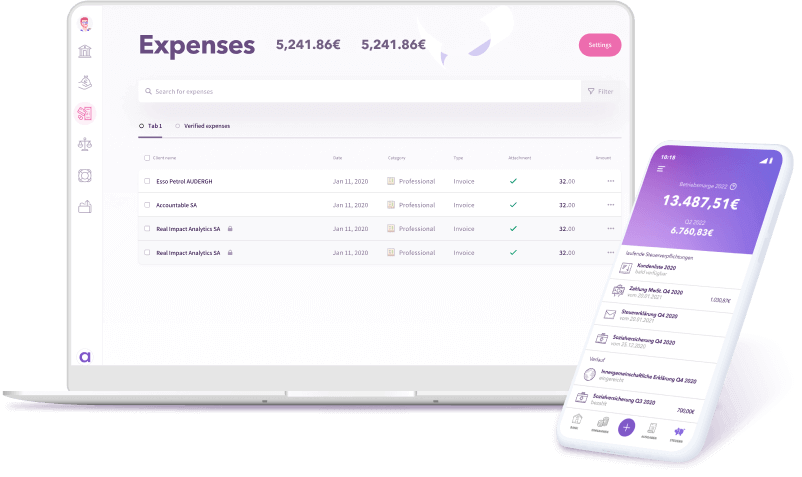
Want to start a side hustle in addition to your full time job? Here’s what you need to know.
Read in 4 minutes
When it comes to freelancing in Germany, it doesn’t have to be all or nothing. Many people with full time employment decide to pursue a second income, building up a side hustle or passion project on the side while continuing their primary occupation.
While there are benefits to exploring self-employment as a part time pursuit alongside your full time job, there are some things that you need to consider. Even if you’ve got a handle on the German language, it can be tough to find the information you need, so in this article, we explain how you can start freelancing on a part time basis, as well as what implications this can have on your taxes, and what role your health insurance plays in this.
What are the advantages of part time self-employment?
Part time self-employment has a number of advantages: The regular income from your employment gives you the security to try out a new freelance venture or side hustle without taking on as much financial risk.
It also affords you the opportunity to dip your toe into the water and see if you even enjoy self-employment, without going all in and finding out that it’s not for you. Being self-employed requires a huge amount of discipline, and bookkeeping, time management, and the ability to self-motivate are some of the key skills needed. It’s not just a matter of loving what you do, so it’s a great idea to try it out before you go all in.
How do I start my own part-time self-employment?
Whether or not you are already employed, in order to begin any kind of self-employment, you have to register your activity with the tax office. The distinction between part- and full-time self-employment is not relevant for this step, and is only important when it comes to your health insurance. Any kind of freelance or self-employed activity must be registered with the tax office.
To register, fill out the questionnaire for tax registration or alternatively register a business. Which classification you have to choose depends on the type of work or activity you’re undertaking.
You’ll then be assigned a tax number by the tax office and you can get started: From now on you are self-employed.
Do I have to inform my employer about my self-employment?
Technically, you are allowed to undertake freelance work in addition to your permanent job, and your employer can’t forbid you to do so. If, however, your performance at your full-time job suffers due to your self-employment activities, your employer can exercise a veto right.
So, it’s important to make sure that:
- Your freelance work does not negatively affect your performance at your main place of employment
- You don’t use any data or work equipment from your main employer for your side hustle
- Your self-employment work doesn’t put you in competition with your employer
If you follow these points, there shouldn’t be any problems with your main employer. Although you’re not obliged to inform your employer about any self-employed work, communicating openly with them and letting them know about your freelance pursuits can help you maintain a positive relationship.
Part-time self-employment and health insurance
Once you have registered your self-employment activity, you must also inform your health insurance provider. The good thing about being self-employed in addition to regular employment is that you don’t have to take out extra insurance for your side hustle. As a rule, the income from your part-time self-employment can run through the insurance for your main employment.
However, you have to follow two basic rules:
- You earn the majority of your income with your full-time job
- The time required for your main job exceeds the time required for your part-time job
If your part-time job exceeds your salaried job by at least 20 percent, in terms of both time and finances, your self-employment activity will be classified as full-time by your health insurance provider. While this is entirely legal, it translates to significant additional costs for you. So, make sure that your freelance income does not exceed your fixed income if you want to keep your existing health insurance.
If you do cross the limit, you’ll be obliged to take out insurance for your self-employed business in addition to your insurance as an employee.
💡Tip from Accountable: Our free app makes it easier for you to document your earnings, so you always know how much money you’ve made.
What taxes do I have to pay if I am self-employed in addition to regular employment?
All people engaging in self-employed activities must pay income tax on their professional earnings. The independent income from your freelance activities will be added to the fixed salary you receive from your main occupation to determine a final tax rate.
If you engage in self-employment or freelance activities in addition to regular employment, you have to include the following forms in your annual tax return:
- Appendix N (for income from your employed activity)
- Appendix S for freelancers, or alternatively, Appendix G if you are a sole trader.
- The appendix EÜR (income surplus calculation) for determining the profit of your self-employed activity
Value Added Tax (VAT)
Regardless of whether your self-employment activity is your main source of income or secondary to another occupation, you must determine whether the goods and services you provide on the side will be subject to sales tax—or Value Added Tax (VAT). If it is, you’ll need to charge VAT on your invoices at a rate of either 19% or 7% depending on the kind of work you’re undertaking. Note that this amount has been reduced for 2020. The VAT that you collect must then be declared and paid to the tax office on a monthly or quarterly basis, and you must also submit a VAT return with your annual tax return. Make sure you’re on top of the important reporting deadlines for freelance work.
As a rule of thumb, you’re exempt from paying VAT if you are considered to be a “Kleinunternehmer” or small business, that is, if your side business does not generate income exceeding 22,000€ in the first year and 50,000€ in the following year. If you don’t expect to exceed these limits, make sure to declare it when you register your self-employment activity.
Ready to get your side hustle on?
Part-time self-employment is a great opportunity for you to test a new business idea without taking on too much financial risk, and to see whether freelance work suits you. Free apps like Accountable can help you keep track of your expenses, stay on top of important tax deadlines, and give you an overview of your finances so you know when you’re approaching limits that can affect things like your health insurance.
Once you have established yourself as a freelancer and worked out a system that works for you, it’s up to you whether you want to take it to the next level or keep your freelance work on the side.
Did you find what you were looking for?
Happy to hear!
Stay in the know! Leave your email to get notified about updates and our latest tips for freelancers like you.
We’re sorry to hear that.
Can you specify why this article wasn’t helpful for you?
Thank you for your response. 💜
We value your feedback and will use it to optimise our content.









